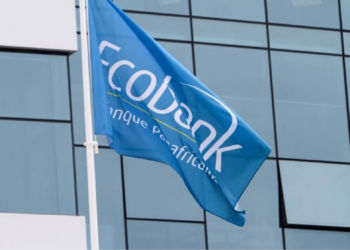ETI recently published its audited consolidated financial statements for the year ended 31 December, 2020.
Year-on-Year, revenues were up 4 percent to USD1,679.8 million while operating profits before impairment losses were also up 14 percent to USD625.7 million. Net interest income also increased by 21 percent on the back of a 27 percent decrease in interest expense, while customer deposits increased by 13 percent to USD18.3 billion.
However, apart from these, not so much else was great about the results. For example, profit before tax and goodwill impairment was down 17 percent to USD337.88 million, while profit for the year was down 68 percent year-on-year to USD88.32 million.
READ: Analysis: Sterling Bank, foreign exchange to the rescue
ETI faced several headwinds during the year that ultimately contributed to the performance. The group, through its Nigerian subsidiary, continued to take a hit resulting from its 2011 acquisition of Oceanic Bank. The effect on the profit after tax in 2020 was a USD163.56 million impairment charge in FY 2020.
In addition, a USD61million monetary loss was charged to the group’s profit resulting from the hyperinflationary economies of Zimbabwe and South Sudan where it operates. According to the Zimbabwe National Statistics Agency, Zimbabwe’s annual inflation eased to 348.59 percent in December 2020, compared with 401.66 percent in the previous month. To put this in perspective, South Sudan’s inflation rate on the other hand was estimated at approximately 58 percent at the end of 2020.
READ: UBA’s African footprint strengthens revenue and earnings
Perhaps further exacerbating the not-so-good results, the group effectively incurred a significant tax rate of 52.25 percent in 2020 compared to 33.3 percent for the same period by December 2019. A combination of these events caused a year-on-year decline in profit after tax by 57 percent, to USD174.32 million at the end of 2020 (2019: USD405.8 million).
The tough operating environment brought about by the global pandemic also impacted the results. While loan and advances and impairment charges were relatively flat in 2020, a significant portion of its loan book received regulatory forbearance, which meant that customer repayments of loan principals were deferred by up to 12 months.
Also, the group’s NPL ratio remained higher than the regulatory NPL limit while Ecobank Nigeria’s NPL was higher than the Group’s NPL ratio. The write-offs arising due to goodwill impairment in Ecobank Nigeria as well as hyperinflation in Ecobank operations in Zimbabwe and South Sudan affected the group’s regulatory capital ratios.
READ: FCMB Group records N188bn revenue, grows Profit to N20.1billion
Although the group remained compliant with the minimum regulatory capital adequacy ratio requirements, its Tier 1 Capital Adequacy Ratio declined from 8.8 percent FY2019 to 8.5 percent FY2020 while Total Capital Adequacy Ratio also declined from 11.6 percent FY2019 to 11.5 percent FY2020. The minimum capital requirements were 7.25 percent Tier 1 and 9.5 percent, Total Capital, respectively.
In January 2021, Ecobank Nigeria raised N50 billion in subordinated debt from Development Bank of Nigeria with a 10-year tenor at 6.5 percent. It also in February 2021 raised USD 300 million in form of a 5-year, fixed-rate, US dollar-denominated bond. These amounts will improve the Nigerian subsidiary’s capital adequacy ratio.
READ: Banking sector NPLs down, loans up
ETI groups its African operations into four geographical regions. The reportable operating segments are Nigeria, Francophone West Africa (UEMOA), Anglophone West Africa (AWA), and Central, Eastern and Southern Africa (CESA). Unlike other Nigerian Deposit Money Banks with International presence that outperform their African and international subsidiaries, the reverse appears to be the case with Ecobank Nigeria within ETI. Among the four geographical regions, Ecobank Nigeria contributed the least to the operating income, operating profit, as well as profit before tax in FY2019 and FY2020. Reported RoE were also 26.9 percent, 18.6 percent, 16.1 percent and 4.2 percent in the AWA, UEMOA, CESA and Nigeria regions in 2020 (against 30.1 percent, 22.8 percent, 23.6 percent and 0.4 percent in 2019 respectively).
ETI’s overall performance depends on whether the results are reviewed from a Naira or Dollar perspective as some of the results were better in Naira than when reported in Dollars. The group lost about USD8.6 million as a result of exchange differences on foreign currency translation of foreign operations. ETI perhaps also seems to be affected by the poor performance of some of its acquisitions as well as its operations in some African countries where it has its presence.
Its earnings per share as of December 31, 2020 was 0.010 (cents) as against 0.778 (cents) for the same period in 2019.





















